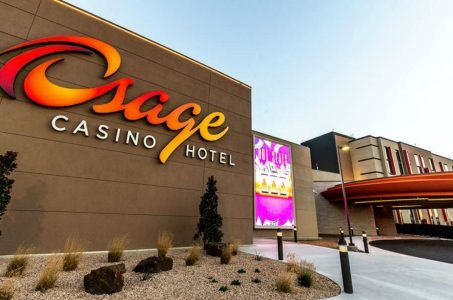New Regulations Aimed at California Cardrooms Called ‘Appalling’ by Gaming Association
Posted on: December 8, 2019, 02:00h.
Last updated on: December 8, 2019, 11:29h.
The California Bureau of Gambling Control (CBGC) is looking to implement new rules that could make standard table games burdensome to play at non-tribal venues. It’s a move that the trade group representing the state’s cardrooms believes is a significant threat to the industry.

The California Gambling Control Commission (CGCC), the regulatory agency for gaming activities in the Golden State, has been holding hearings for a year. Resulting rules changes could materially alter how table games are played at the state’s 72 cardrooms, potentially making the venues significantly less attractive to gamblers than in-state tribal rivals and Las Vegas casinos.
California cardrooms, such as Larry Flynt’s Lucky Lady Casino and Hustler Casino, The Bike, and Hawaiian Gardens, all of which are in the Los Angeles area, don’t offer slot machines. The other big differentiation between these venues and state tribal gaming properties, such as Morongo and Pechanga, is that dealers at the cardrooms act as the house and the venue makes money by assessing a fee, tied to the table limit, on each hand played.
The CGCC’s newly proposed rules mandate that players take turns acting as the banker, rotating that task every two hands. If no one wants to do that, the game ends.
The California Gaming Association (CGA) is appalled by the proposed regulations,” said the CGA, the cardroom trade group, in a statement provided to Casino.org. “The Bureau’s proposal exceeds its statutory authority.”
The fear is that cardroom patrons simply won’t want to be “working” during what’s supposed to be leisure time.
Long-Running Spat
The CGCC proposal represents the latest salvo in what has been a long-running, contentious row between cardrooms and their tribal rivals. Last month, a California tribal consortium revealed an attempt to get sports betting on the 2020 Golden State ballot, an initiative that not only prohibits betting on college sports, but would also leave cardrooms out in the cold.
The CBGC, the enforcement arm for gaming-related matters in the largest US state, is overseen by the attorney general’s office. California Attorney General Xavier Becerra, a Democrat, has received significant campaign contributions from various tribal gaming groups, prompting some speculation in local media reports that he’s not in favor of cardrooms.
For its part, the CGA remains concerned the rules changes ignore existing precedent and could represent significant harm to local economies.
The proposal disregards existing precedent, and proposes changes to the way cardrooms have been licensed to play games for over forty years without harm to or complaint from the public,” said the CGA. “If these regulations were adopted as proposed, they would kill the cardroom industry and devastate dozens of communities and thousands of working California families across the state.”
Last year, the gaming industry and tribal governments contributed a combined $325,600 to Beccerra’s reelection campaign, an effort that he won with more than 63 percent of the vote.
Economic Impact
The economic argument is credible. As Casino.org reported last month, the California cardroom industry results in $5.6 billion in an annual impact to the state economy, while supporting over 32,000 direct and indirect jobs.
Additionally, those venues send $500 million in tax receipts annually to state coffers.
“This proposal is a clear attack on the cardroom industry and a message that the Bureau is intent on eliminating this lawful $5.6 billion industry and putting 32,000 Californians out of work,” said the CGA. “We are continuing to review our options, but we intend to defend our industry, its right to operate, and the communities we serve and support.”
Related News Articles
Most Popular
Mirage Las Vegas Demolition to Start Next Week, Atrium a Goner
Where All the Mirage Relics Will Go
Most Commented
-
Bally’s Facing Five Months of Daily Demolition for Chicago Casino
— June 18, 2024 — 12 Comments
















Last Comment ( 1 )
I agree california cardrooms allow dealers to be abused. Let the players sit in the hot seat. And make sure they can't reply when cards are thrown at them and the players say fucked up shit about them like they can't hear.